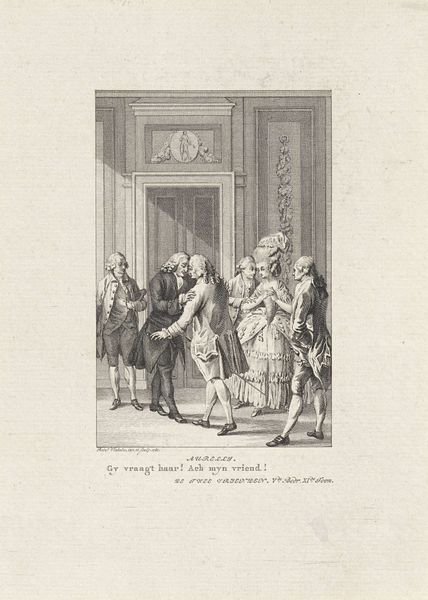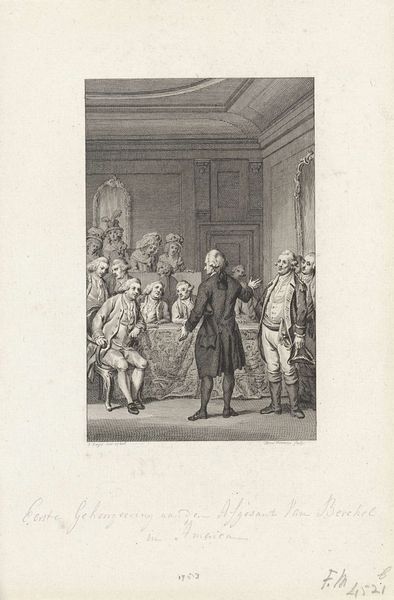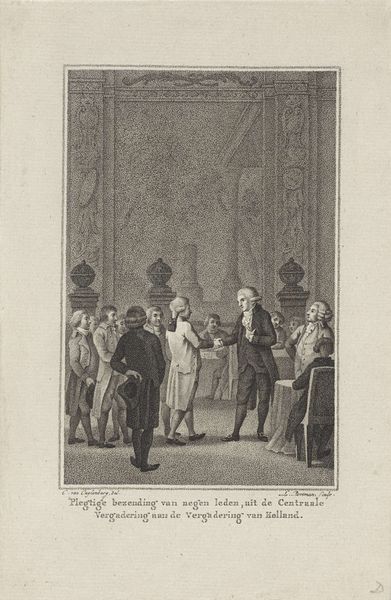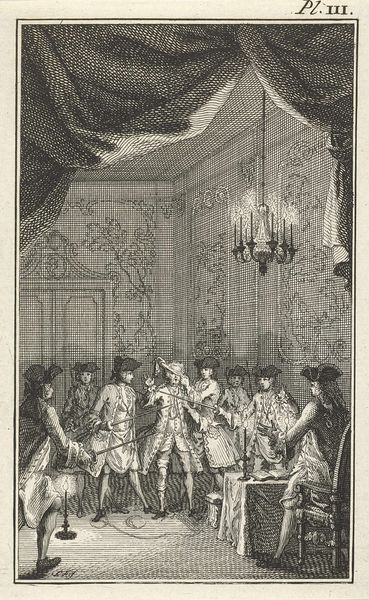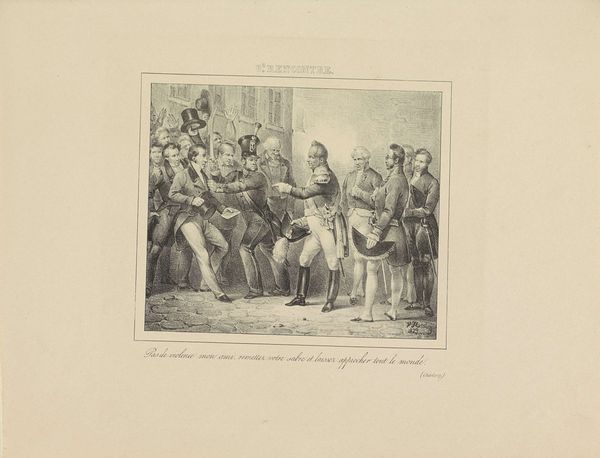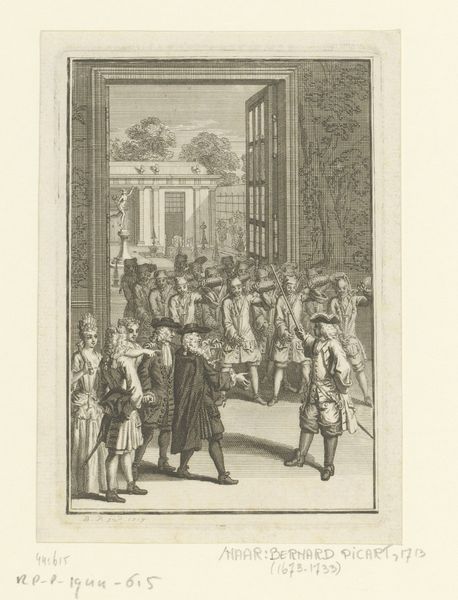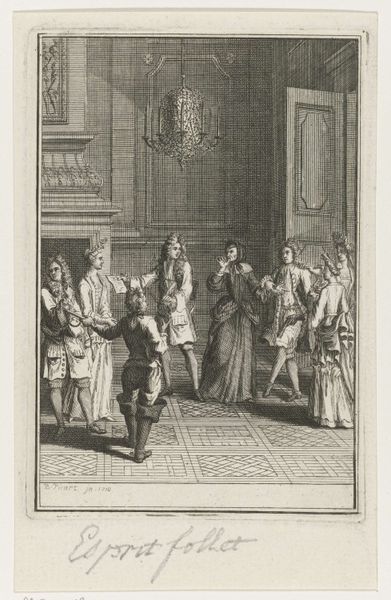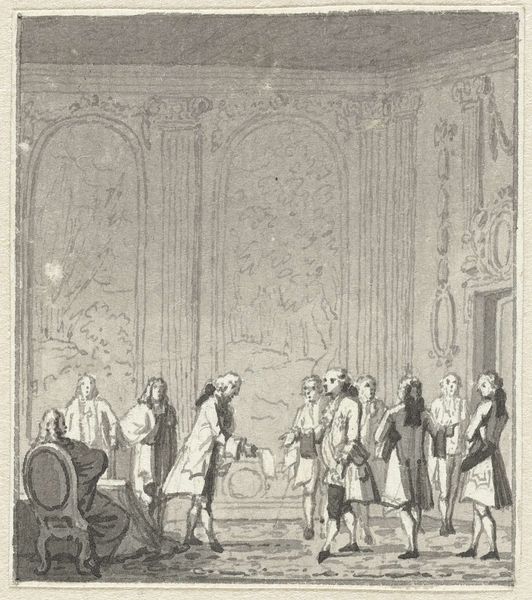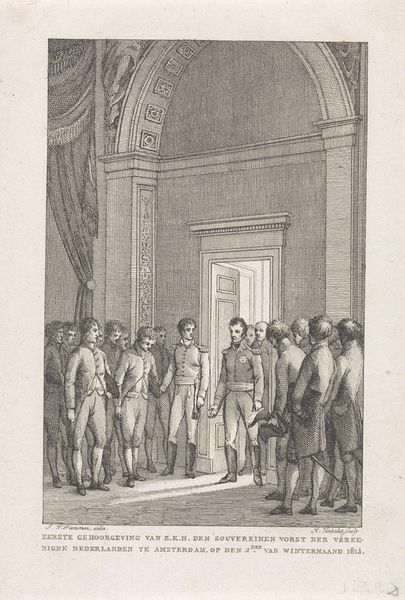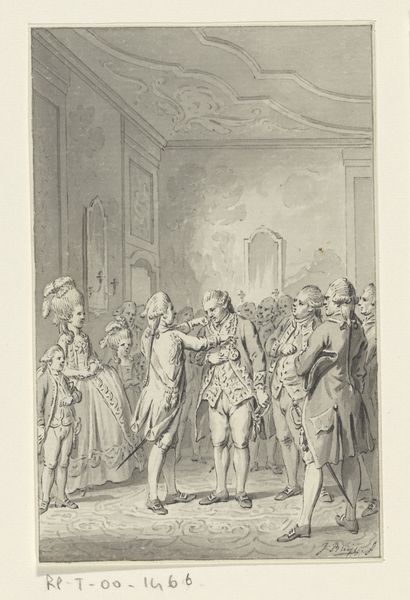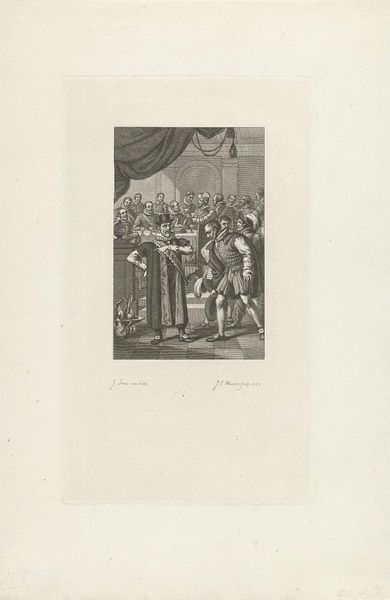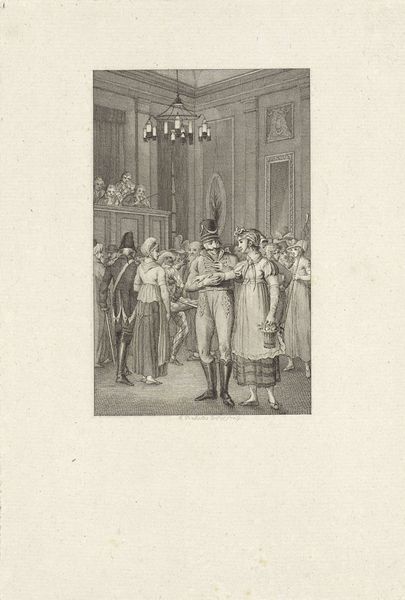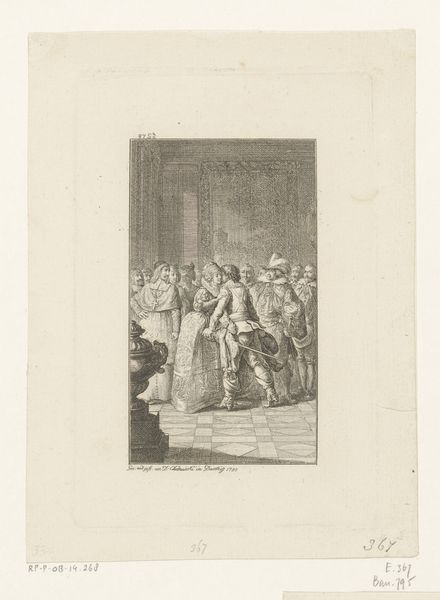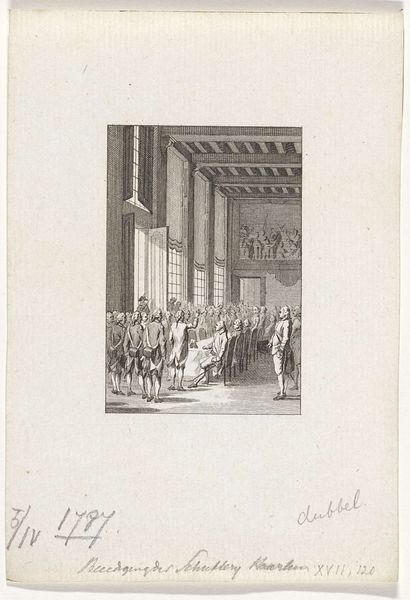
Teruggave door de Fransen van historische stukken uit stadhouderlijke collectie aan de Staten-Generaal, 1795 before 1803
0:00
0:00
reiniervinkeles
Rijksmuseum
print, engraving
#
neoclacissism
#
narrative-art
#
dutch-golden-age
# print
#
old engraving style
#
figuration
#
line
#
genre-painting
#
history-painting
#
engraving
Dimensions: height 230 mm, width 155 mm
Copyright: Rijks Museum: Open Domain
Reinier Vinkeles created this print in 1795, depicting the return of historical artifacts by the French to the States General. It’s made using engraving, a printmaking technique that relies on the skilled manipulation of metal. The crisp lines and tonal gradations are achieved by carefully incising the image into a copper plate. The engraver uses a tool called a burin to carve lines of varying depths and thicknesses into the metal. Ink is then applied to the plate, filling the carved lines, and the surface is wiped clean. The print is made when paper is pressed against the plate, absorbing the ink from the grooves. In Vinkeles' time, printmaking was a key means of circulating information and propaganda. Here, the medium itself reflects the political content: the transfer of power, the production and dissemination of images as a form of cultural currency. The labor-intensive process reminds us of the many hands involved in shaping public opinion, and the cultural significance embedded in printed images. It challenges distinctions between art, craft, and political communication.
Comments
No comments
Be the first to comment and join the conversation on the ultimate creative platform.
